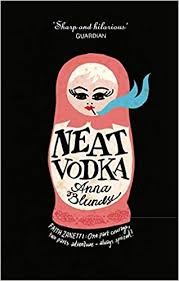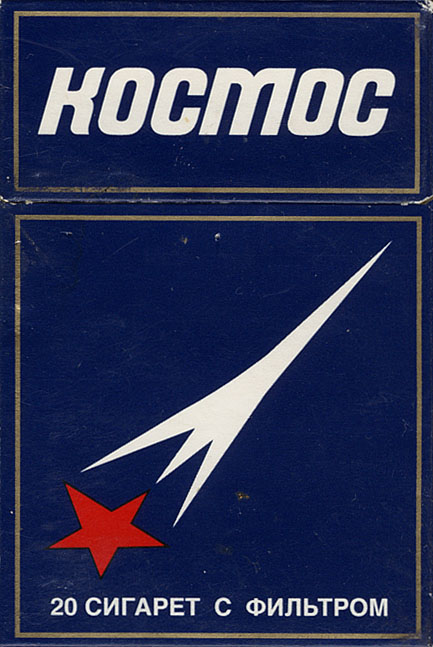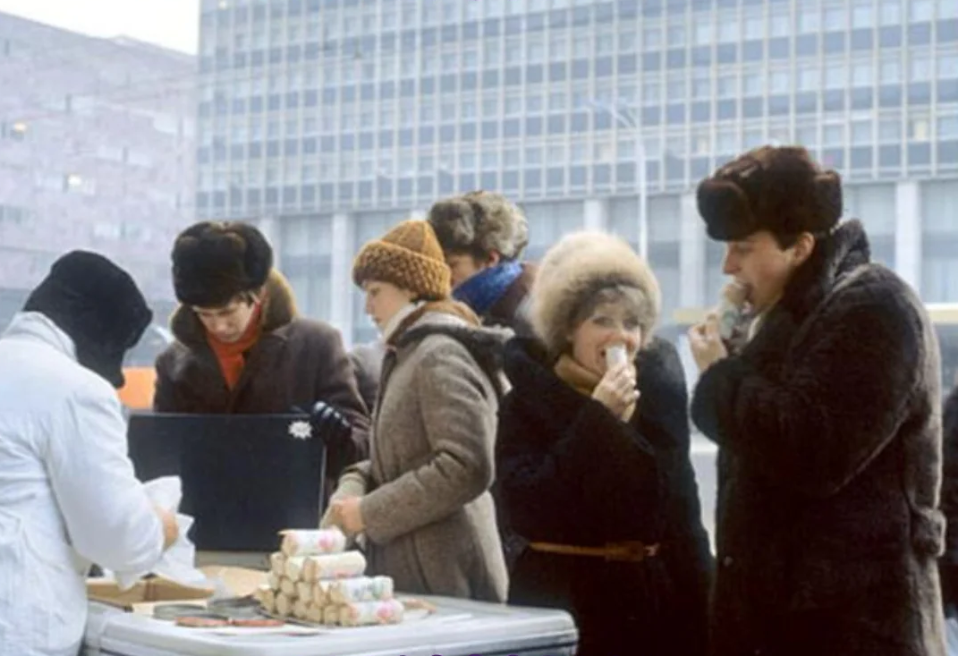Part two of this review is here.

Neat Vodka encapsulates so much of what lies behind this Russia in fiction blog.
On the one hand it’s a fairly light frolic of a paperback novel. On the other, it brims with detail and description redolent of Russia in recent decades.
Readers are treated to a romp through the world of Blundy’s regular heroine —boozy, chain-smoking foreign correspondent Faith Zanetti, posted to early 21st-century Russia. Neat Vodka (which I understand to be called Vodka Neat in the United States) has a catchy plot, is well-written, and provides a degree of tension in a snappy and humorous style.
Eden raised his hand like a confused schoolboy who had been away with chickenpox when long division was happening
Neat Vodka, p. 96

The plot is built around the fact that its heroine had spent time in Russia before, in the late Soviet era, when —as a teenager— she rapidly met, married, and left a bright young Soviet lad on the make. A lad who smokes Kosmos cigarettes. It had me at the cigarettes, taking me back to student days in the Soviet Union.
When she returns to Russia nearly 20 years later, this almost forgotten youthful dalliance catches up on her, in a tale of relationships, murder, and oligarchs.
I liked the story for what it is, a cheerful and fast-moving affair despite the amount of death and general gruesome-ness in it. According to this interview, it is at her publisher’s request that the light tone is retained. Something to do with appealing to readers of Cosmopolitan magazine.
What I really enjoyed when reading Neat Vodka was how well Blundy knows both Russia, and the late Soviet era. She lived there as a student about the same time as me, the late 1980s, and was Moscow correspondent for The Times newspaper in the late 1990s. What she writes about, she knows about.
But I have to confess to being amazed at how much of the story itself is apparently autobiographical.
Blundy herself did fall in love with ‘a black marketeer I met on Red Square’, and there was a murder in the flat next door to hers. (Although the details of the murder in Neat Vodka seem designed to replicate Raskolnikov’s axe-murder of Alyona Ivanovna and Lizaveta in Dostoevsky’s Crime and Punishment, and I take at least this much to be fictional.) Blundy draws on some of this same material in her novels The Oligarch’s Wife (2009) and Only My Dreams (2001).
I could spend ages pointing out the details of what she knows about life in the Soviet Union in 1989, it brought so much to mind —the trick of getting into posh hotels by walking past the doormen speaking loudly in English (Sophia Creswell uses this in Sam Golod), or the simple few sentences which took me right back to living in the Soviet Union:
I walked down the boulevard with my head bowed against the snow. There was an old woman sitting on a bench selling ice creams in squat cones out of a cardboard box for 10 kopeks. An ancient orange and white tourist bus juddered outside the circus, choking everyone near it with thick black exhaust fumes.
Neat Vodka (2006), p.5

Blundy, through Zanetti, pithily recalls peculiar details of late Soviet life. At a time when shortages and empty shops were ubiquitous, she goes to the market. Her description could be taken from my diary from the time —except I didn’t keep one, and I lived in Voronezh not Moscow.
Nobody, however, could afford anything there. You would see old ladies buying two potatoes and actually weeping when they handed over the money. The market had everything. It was like paradise. It was indoors in a vast modern hall next to the circus and it smelt of Eastern spices and pickles. Birds flew about in the rafters and rats scuttled beneath the tables. The whole place seemed to steam.
‘Dyevushka! Dyevushka!’ The traders called out at me as I passed. ‘Girl! Girl!’ They had gold teeth and funny accents and made Russian sound unpronounceable and clipped …
They had oranges, lemons, grapes and watermelons, pumpkins, courgettes and yellow and red peppers. There were enormous white cheeses dripping on slabs, vats of dark honey, vats of pale honey, mounds of coloured spices. I loved the market. But even on my salary and Dmitrii’s vaguely ill-gotten gains it was a treat.
Neat Vodka (2006) p. 84
Part two of this review is here.